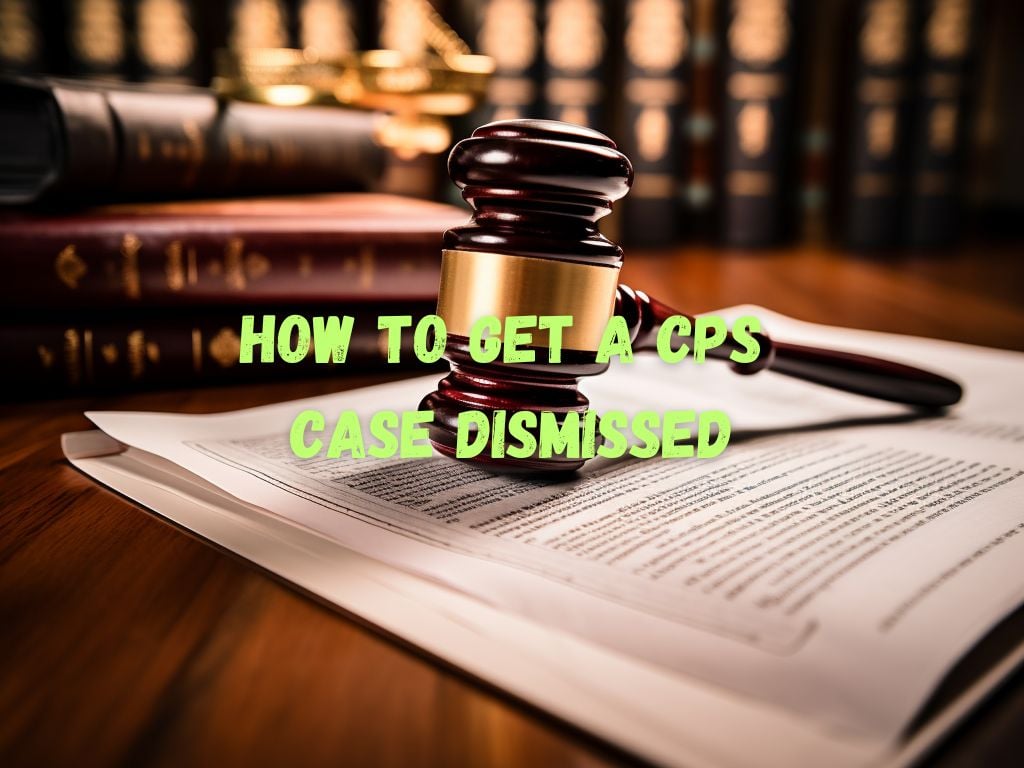Dealing with a CPS case can be a draining and worrying experience for any parent or guardian.
Allegations of child abuse or neglect can be grave, and the consequences of such allegations can be far-reaching.
In some cases, it could lead to the removal of a child from the parent or guardian’s custody and supervision.
The legal process of navigating CPS cases can be labyrinthine and overwhelming.
This comprehensive guide will provide a detailed breakdown of CPS procedures, how to get a CPS case dismissed, insights from legal experts, and tips to help you build successful defenses against false allegations.
Understanding CPS Cases and the Importance of Process Knowledge
In the United States, the main aim of Child Protective Services (CPS) is to investigate claims of child abuse or neglect.
The agency employs a range of professionals, including social workers, investigators, lawyers, and court officials, to achieve its objectives.
It’s crucial to note that CPS investigations can stem from different sources, including anonymous tips from individuals who suspect child abuse or neglect.
Additionally, teachers, neighbors, or healthcare providers can also report claims of child abuse or neglect to CPS.

When CPS receives a report about child abuse or neglect, investigators will start an inquiry into the allegations. CPS investigators have the authority to enter a parent or guardian’s home without their consent, interview the child, and request medical and educational records.
Once the investigation concludes, CPS investigators will submit a finding to their supervisors. The finding will classify the allegation into one of four categories:
- Substantiated: CPS finds evidence of child abuse or neglect
- Unsubstantiated: CPS doesn’t find sufficient evidence of child abuse or neglect
- Inconclusive: CPS doesn’t find enough evidence to classify the allegation as substantiated or unsubstantiated
- Unable to determine: CPS is unable to complete the investigation to make a finding.
There are also different legal terms of finding for CPS cases, including “preponderance of the evidence” and “beyond a reasonable doubt.”
It’s essential to know that parents or guardians have rights once a CPS investigation begins.
They can dispute any allegations, request counsel, and have access to legal representation to assist them during the process.
How to Get a CPS Case Dismissed? A Step By Step Guide
Conduct Your Own Investigation
To build a strong defense, conducting your own investigation is essential. Collect and organize all relevant documents, including school records, medical records, and any correspondence with CPS.
Additionally, interview witnesses who can provide testimonials supporting your innocence or disproving the allegations made against you.
Evaluating the credibility of the allegations against you is also crucial in the defense process.
Consult with a CPS Lawyer
Seeking legal representation is highly recommended when faced with a CPS case.
An experienced CPS lawyer can guide you through the intricate legal procedures and provide valuable advice tailored to your specific situation.
Research and find a lawyer specializing in CPS cases to ensure you have the best possible legal support to get your case dismissed.
File a Motion to Dismiss
If you believe there are grounds for dismissal in your CPS case, filing a motion to dismiss is a proactive step towards achieving this outcome.
Consult your CPS lawyer to understand the legal requirements for dismissal and gather evidence to support your motion.
Prepare a well-drafted motion presenting your arguments and supporting evidence, and file it with the appropriate court.
Be prepared to present your motion in court and address any counter-arguments from CPS.
Gather Supporting Documentation
To strengthen your defense and increase the chances of getting your CPS case dismissed, gather supporting documentation.
Obtain character reference letters from trustworthy individuals who can vouch for your character and parenting abilities.
Additionally, provide evidence of a stable and safe environment for your child, such as photographs of the living conditions, cleanliness of the house, and any safety measures implemented.
Present proof of positive parenting practices, involvement in your child’s education, and extracurricular activities.
Attend CPS Hearings and Meetings
Active participation in CPS hearings and meetings is crucial for a successful defense. Prepare thoroughly for each hearing, understanding the process and your rights as a parent.
Cooperate with CPS while protecting your rights, providing relevant information and addressing their concerns.
Present a strong defense by presenting your evidence, challenging any false allegations, and presenting counter-evidence when appropriate.
Work with CPS and Follow Recommendations
While endeavoring to get your CPS case dismissed, it is essential to show a willingness to work with CPS and comply with their recommendations.
Cooperating with CPS investigators and following their recommendations demonstrates your commitment to ensuring the safety and well-being of your child.
Provide evidence of any positive changes made or steps taken to address concerns raised by CPS.

Frequently Asked Questions
Can a closed CPS case be used against you?
Once a CPS case is closed, it should not have a negative impact on future proceedings unless new evidence or allegations are presented.
Do all CPS cases go to court?
Not all CPS cases go to court. In many instances, CPS and the family work together to develop a safety plan and address any concerns without involving the court.
How long do CPS workers have to complete their investigation?
The time frame for completing a CPS investigation can vary depending on the complexity of the case and local procedures. However, most investigations aim to be completed within 30-60 days.
How can I look up information on my CPS case?
You can typically request access to CPS records through a Freedom of Information Act request or by contacting your local CPS office.
How long can CPS keep a case open?
There is no specific time limit on how long a CPS case can remain open. The duration of involvement varies based on the circumstances and progress made towards resolving the concerns identified.
Is it possible to sue CPS for wrongful removal?
In some cases, it may be possible to pursue legal action against CPS for wrongful removal or misconduct. Consult with a CPS lawyer who can assess the specifics of your case and advise on the appropriate legal options.
Conclusion
Getting a CPS case dismissed requires strategic planning, thorough investigation, and knowledge of the legal process.
By understanding the intricacies of CPS cases and following the strategies outlined in this comprehensive guide, you can take proactive steps to dismiss your CPS case and regain control of your life.
Remember, seeking the guidance of an experienced CPS lawyer is crucial in navigating this challenging process.


 Tags:
Tags:










